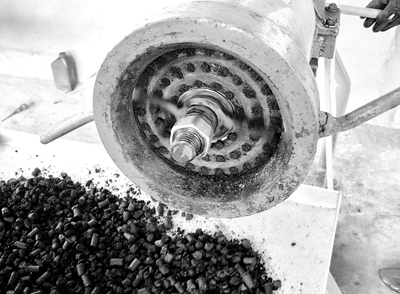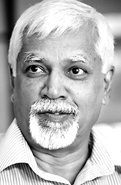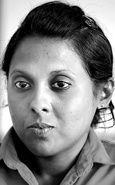Pellets: Solid solution to twin problems
Urban waste management and the need to increase farmers’ access to organic fertilizers are pressing problems for Sri Lanka. Questions of substandard fertilizer have caused controversy in the past, while the lackadaisical approach to garbage disposal has not been solved. It may seem daunting to address both these issues in one go, but the Central Environmental Authority (CEA) in tandem with the International Water Management Institute (IWMI) are working on it through their ‘Pilisaru’ project which turns solid waste, including human excreta into pellets of high quality organic fertilizer.

With the recently signed agreement to collaborate towards ‘Resource Recovery and Reuse’ in Sri Lanka, the Chairman of the CEA, Wimalasena Rubasinghe, and Director General of IWMI, Jeremy Bird undertook an exchange of knowledge and technology to tackle the twin issues.
IWMI will support the CEA with its experience in the application of a ‘business thinking approach’, and the introduction of new technology to increase the value of compost. This involves compost blending with rock phosphate or septic sludge, and its pelletizing, to improve the nutrient value and handling of compost. Both measures can enhance its market potential, which would help cost recovery and increase the sustainability of composting efforts in the country.
“With the turn of urbanisation, cities have become resource sinks. Half-used material is being disposed and almost 40 per cent of material is underutilised,” says Head of the IWMI Sri Lanka Programme, Dr. Herath Manthrithilake. “Furthermore, there is a need for proper solid waste disposal.” He points out that solid waste contains a greater composting potential since it has a greater nutrient content.
The project’s initial phases saw a feasibility study being conducted for normal and enhanced compost production. Currently, similar studies which analyse different market segments are being conducted by IWMI in nine cities around the world. “The approach used in the feasibility study could become an example for all stations of the ‘Pilisaru’ project undertaken by the CEA,” says Dr. Manthrithilake.
In today’s ecologically aware world, recycling is immensely popular-but most recoil from the notion of re-using a human waste product, and a new approach was needed.
“The idea behind pelletizing the fertilizer is to make it easier for handling. Usually people would feel reluctant to handle it since its origin is from human waste, but pelletizing the fertilizer would mean that it can be scattered into the field with less contact and more ease,” says Dr. Manthrithilake. “There is no harm done in handling fertilizer made from solid waste, but it is that mindset that we wanted to break down,” he adds.
Pelletizing solid waste was first done in Ghana, and it has had a massive reach because the fertilizer doesn’t smell, can be safely handled and doesn’t bear any resemblance to its origin. The IWMI strongly believes that the same principles can be applied in Sri Lanka, and access to high quality fertilizer will soon be commonplace.

Dr. Manthrithilake
“The primary objective of the project is to assess the re-use potential of solid waste and faecal sludge and determine their value in composting,” says Nilantha Jayathilake, a member of the research group. She mentions that their research has indeed assured their notions of being able to derive high quality fertilizer from solid waste, including human excreta.
The process is quite simple: first the waste is sorted out into compostable and non-compostable, the compostable material is then subjected to frequent turning under anaerobic conditions (without oxygen), upon which the fertilizer can be derived. Here onwards it is subjected to a small machine that will remove the pungency and pelletize it.
“The word Pilisaru, in Sinhala refers to the conversion of the condition of a thing from useless state to use full state,” says N. S. Gamage, Project Director of the CEA. He says that the concept of this programme is to reutilise the disposed garbage to the maximum extent possible and dispose the non-utilizable residue.
“Sixty per cent of waste is compostable and we use that component in our project,” he says. “The Pilisaru project has completed five major composting projects having a capacity between 10 – 5O metric tonnes per day, which contribute immensely to the systematic management of solid waste in the respective local authority areas. A sanitary landfill site is also under construction in the Dompe Divisional Secretariat area in the Gampaha District from where we can obtain waste for the project”.

Nilantha Jayathilake
“The IWMI is the knowledge bestowing agent in the project and our expertise will help the CEA with the Pilisaru project.” says Dr. Manthrithilake. IWMI’s work on domestic waste composting, for example with faecal sludge started a decade ago after the Institute merged with the International Board for Soil Research and Management.
It has since been bestowing technical knowledge to government institutions to enhance the reuse potential of waste. “
“The Sri Lankan market has a high demand for fertilizers and it is best to produce them locally to avoid dependence on chemical fertilizer imports.
More and more private companies need to show interest in this project as they can obtain the know-how and make the fertilizer, making it in an industry in itself,” says Dr. Manthrithilake.
comments powered by Disqus

